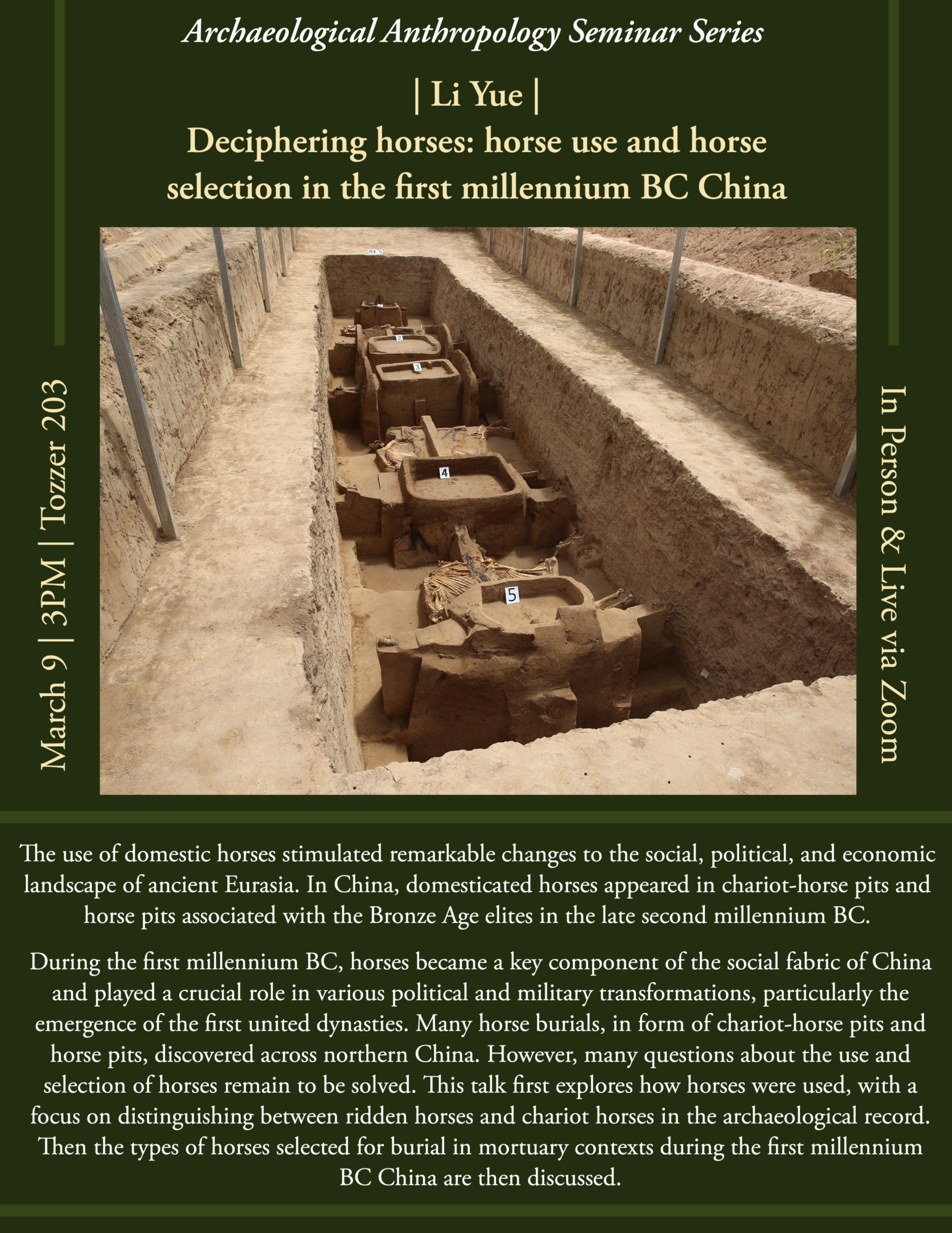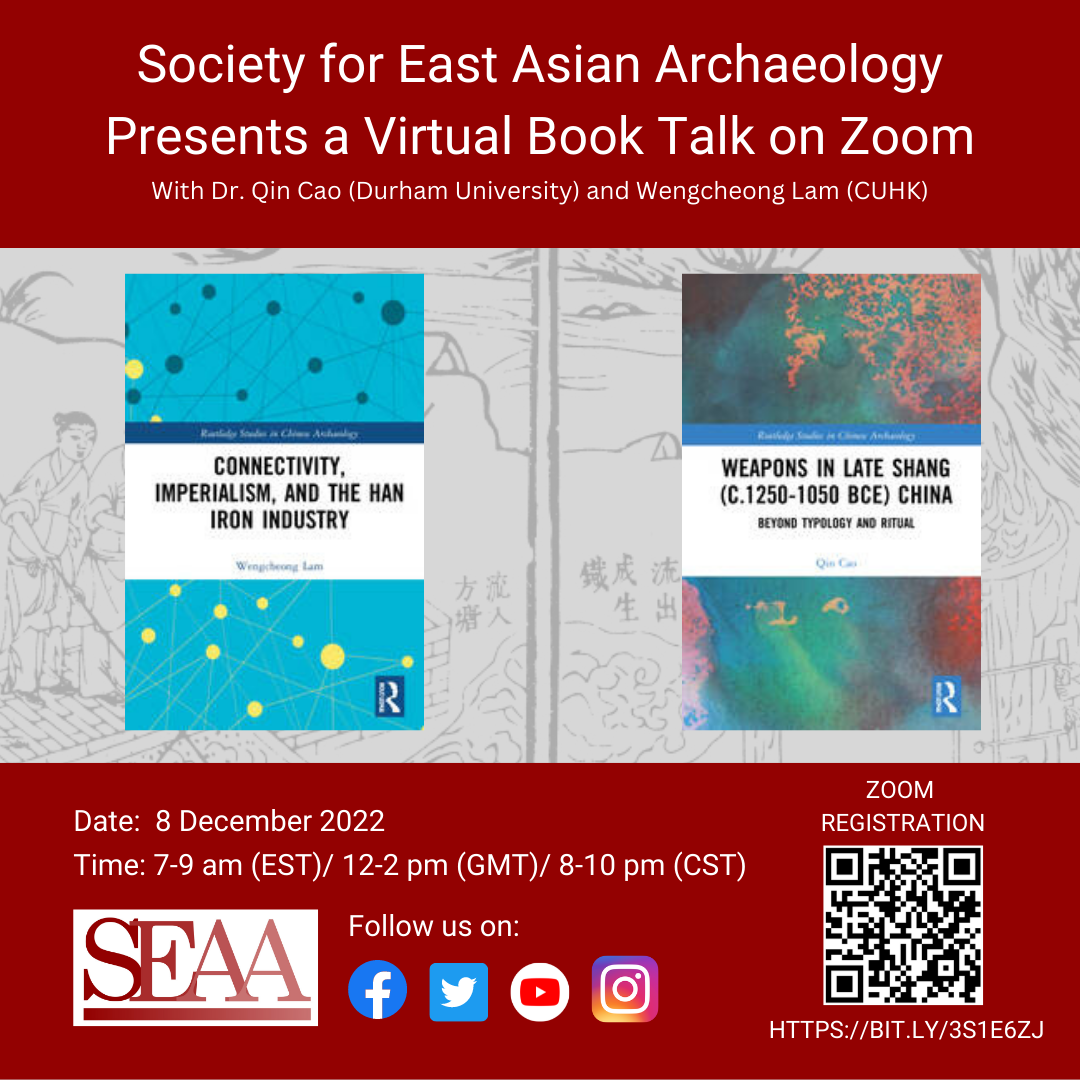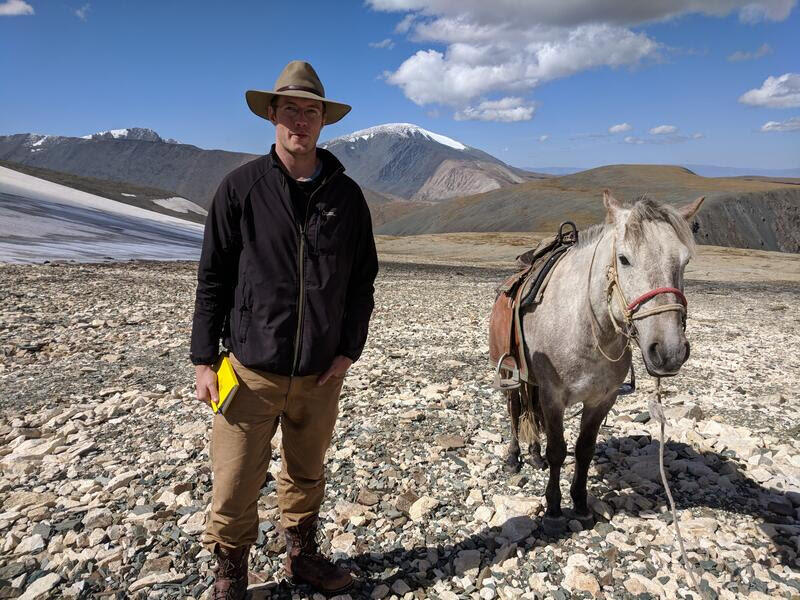Monday, February 13, 2023, 1:00pm to 3:00pm
Tozzer 203
Abstract: Iizuka recently began archaeological excavations on Tanegashima Island off Kyushu where the most pronounced change from the terminal Upper Paleolithic (ca. 17,000- cal BP) to ceramic-bearing Incipient Jomon (ICP-J: 14,000/13,500-12,800 cal BP) is found. Southern Kyushu, with its recurring volcanic eruptions and well dated tephra, has the most reliable known regional geochronology associated with the presence of late Pleistocene pottery. Iizuka will test whether increased signatures of sedentism, adoption of new subsistence strategies, and long-distance exchange were responses to risks associated with climate change. The dating of the onset of ICP-J is unclear. This project will acquire high-resolution geochronology; as well as archaeometric ceramic and lithic, sea-level, paleobotanical, and paleoenvironmental DNA data. The study will be an exemplar for understanding the contexts for the adoption of pottery and late Pleistocene forager responses to ecosystem risks. With colleagues, Iizuka is also studying the issues of the peopling of North America because the time frame of the adoption of ceramics in East and Northeast Asia has implications for the coastal migration model.
Iizuka is Adjunct Research Professor of the Department of Anthropology and Research Reactor Center (MURR) at the University of Missouri. Iizuka has published peer-reviewed articles including in Science, Science Advances, PaleoAmerica, PLOS One, and Quaternary International (QI), and guest-edited a special issue in QI. She has received grants from NSF and the Japan Society for Promotion of Science. She has presented at numerous international meetings and organized sessions, holds a leadership role in the American Ceramic Society, and is on the editorial board of a Springer book series, Interdisciplinary Contributions to Archaeology.
See also: 2022-2023
Copyright © 2024 The President and Fellows of Harvard College | Accessibility | Digital Accessibility | Report Copyright Infringement


